This week Yes advocates ramped up their advertising, did their best to flood bus stops and train stations with canvassers and even took their campaign to London, with cricket fans on their way into The Oval urged to support the voice.
Most significantly, its key architect, Noel Pearson, has paused his personal attacks on No campaigners. And, in a big change from the previous tactic of accusing opponents of being closet racists, he is now claiming the voice is all about solving practical problems such as health, education, jobs and housing.
It’s a smart move because almost all of us want to see improvements – except that almost nothing in the Uluru Statement from the Heart is about practical outcomes.
In an interview this week, Pearson said: “The voice is going to have its hands full, tackling these basic issues that are about closing the gap.” He added: “There’ll be a paradigm shift from ‘the gap is not closing, and it’s all the government’s fault’, to one where ‘how are we going with closing the gap, which is our joint responsibility’.”
It sounds great, only it’s not actually true. The voice won’t take responsibility for anything. Under the Constitution it will have a right to make representations.
But as Anthony Albanese constantly says, actual responsibility for the delivery of programs and the securing of outcomes will remain entirely with the government. In that sense, far from being a fresh start, the voice would just be doubling down on the existing failure. It would be yet another advisory body (albeit a constitutionally sanctified one) adding to the cacophony of advice the government already receives on Indigenous issues.
In his heyday as a welfare reformer, Pearson would often talk about “our right to take responsibility”. If only that was what the voice did. Instead, the voice is all care but no responsibility.
It’s not Indigenous individuals taking responsibility for their own lives, as Warren Mundine says should happen, but yet more responsibilities loaded on to government; this time, to heed yet another and even more weighty collective of Indigenous elites.
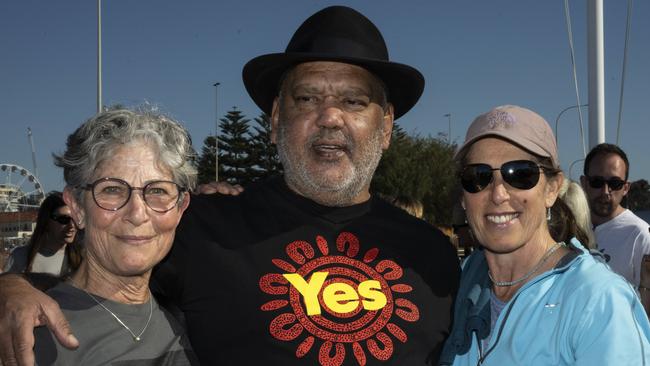
Anyone who wants to know the preoccupations of any future voice should read the official accounts of the deliberations leading up to the Uluru Statement from the Heart plus the entire statement, now available on the National Indigenous Australians Agency website thanks to a successful Freedom of Information application.
I suspect many Australians aren’t even aware that the Uluru statement isn’t the simple one-pager that has been widely circulated but a far more comprehensive document that runs to 26 pages, and it’s an eye-opener because the whole tenor of the Statement from the Heart, and of the 13 meetings leading up to it, is of anger, grievance, separatism and the need to undo, as far as possible, the past 240 years of Australian history.
The single-page version of the statement, all that was available until recently, simply states that the “structural nature of our problem” is the “torment of our powerlessness” but “when we have power over our destiny our children will flourish, they will walk in two worlds, and their culture will be a gift to their country”. In addition to the voice, the one-page statement seeks “a Makarrata Commission to supervise a process of agreement-making between governments and First Nations and truth-telling about our history”.
But thanks to the FOI request, we now know the full statement declares: “The invasion that started at Botany Bay is the origin of the fundamental grievance between the old and new Australians … This is the time of the Frontier Wars when massacres, disease and poison decimated First Nations even as they fought a guerrilla war of resistance. The Tasmanian Genocide and the Black War waged by the colonists reveals the truth about this evil time.
“The taking of our land without consent represents our fundamental grievance against the British Crown … By making agreements at the highest level, the negotiation process with the Australian government allows First Nations to express our sovereignty”. And contrary to the Prime Minister’s recent poll-panicked claim that the voice is not about treaties, the official documents confirm that treaties, indeed, are its precise point; as should be expected given the “Voice, Treaty, Truth” mantra that emerged from the Uluru gathering and that the Prime Minister, when the polls were more encouraging, reiterated 34 times saying his government was committed to the Uluru statement “in full”.
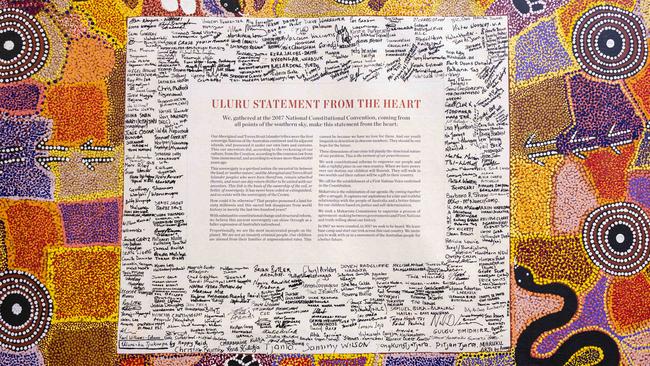
Far from government being to blame for inculcating “a sense of victimhood” in Aboriginal people, as Pearson claims, the entire Uluru process, as the official documents show, is riddled with a desire to avenge the theft of Indigenous land and the violence wreaked against Indigenous peoples. Directly challenging the Prime Minister’s oft-made claim that the voice is just a matter of being polite and courteous to Indigenous people, the full statement declares “minimal reform or symbolic reform is not enough”.
It references “the right of self-determination”, including the “recognition of Indigenous peoples as the original owners of this land and of the particular rights that are associated with that status” and that “any voice to parliament” should support “the recognition, observance and enforcement of treaties”.
Treaty, the full statement says, is the “vehicle to achieve self-determination, autonomy and self-government” with “a truth commission, reparations, a financial settlement (such as seeking a percentage of GDP), the resolution of land, water and resources issues”. If in any doubt about the radical nature of the changes sought by the activists behind the voice, just thumb through the 86 pages of lead-up deliberations preceding the full 26 pages of the Statement from the Heart.
A reasonably representative sample of these deliberations is this passage: that “delegates spoke of the need to acknowledge the illegality of everything done since colonisation, the first act of aggression on first contact, the extreme cruelty and violence of the government and the impact of the forced removals”. Further, that “the British were not colonisers, they were invaders, murderers, and rapists”. And that “white people are more disadvantaged because they live in a country that is not their own. They’re living a lie.”
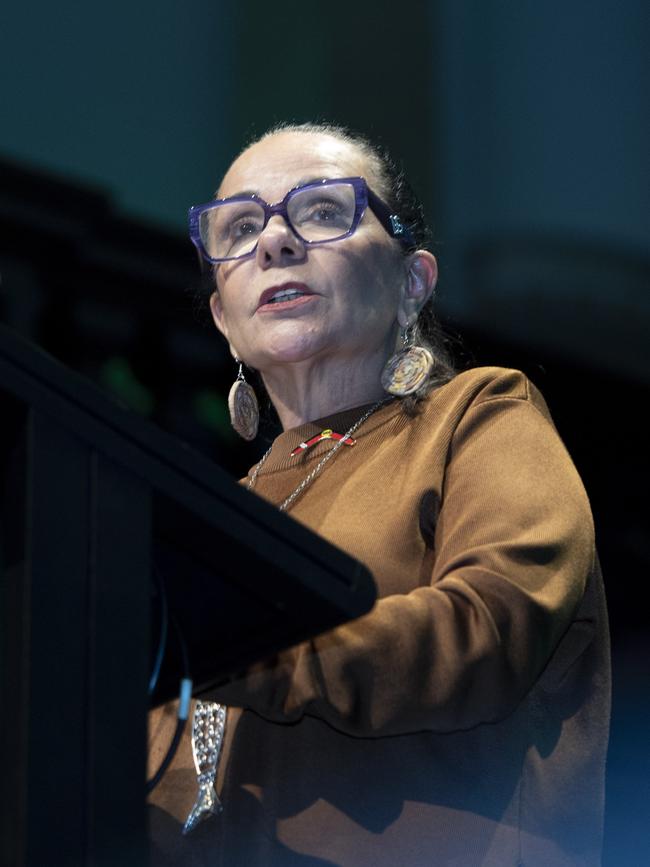
Be in no doubt. If the voice gets up there will soon be two classes of Australians: those with ancestry extending back tens of thousands of years, increasingly consumed with a sense of grievance and entitlement, even though modern Australia is almost entirely colourblind; and those whose ancestry in this country goes back no further than 1788, who will be expected to pay reparations for the privilege of living in the nation they and their ancestors have helped create.
It’s all there in the documents now available, whatever smokescreen the Prime Minister and other Yes campaigners try to throw up. And as a campaigner, heed this warning. It is not a given that the voice is doomed to fail. The Yes campaign will outspend the other side by a margin of 10 to one with a final message that it’s racist to say No, even though the whole point of the voice is to transform forever the least racist country on earth.
Please, read the documents that those who want the voice hoped you would never see.
Click here to read the documents.
You can listen to Abbott & Credlin on the Sky News Australia mobile app, website or wherever you find your podcasts, including Spotify, Google, Apple or Nova Player.


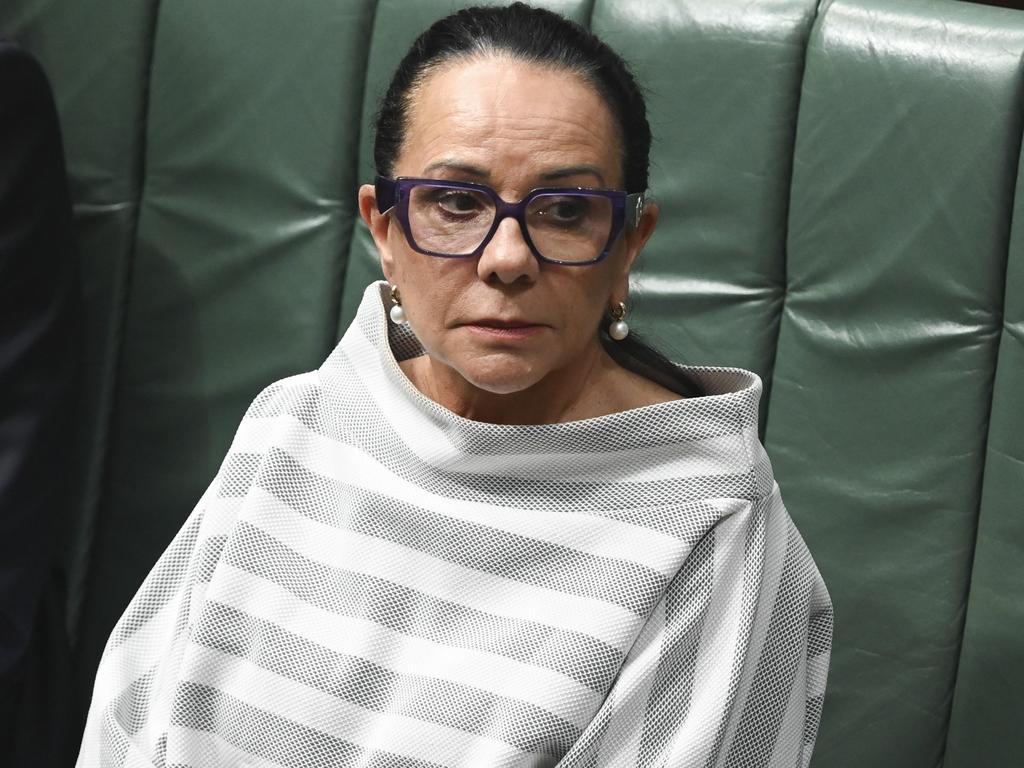

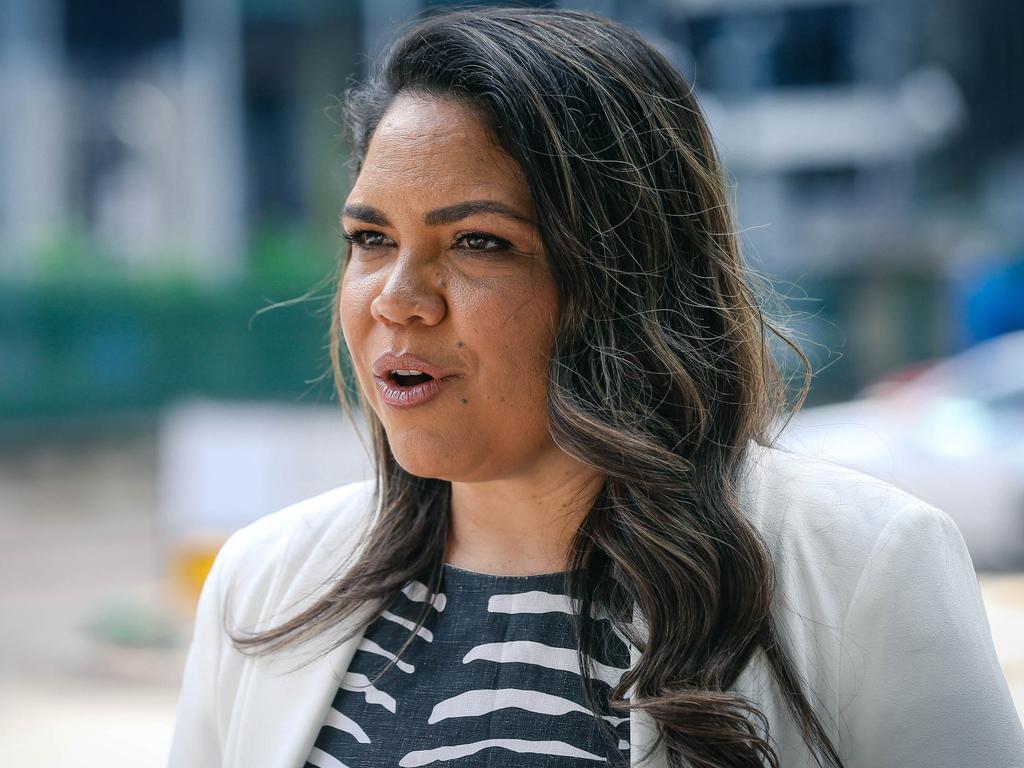
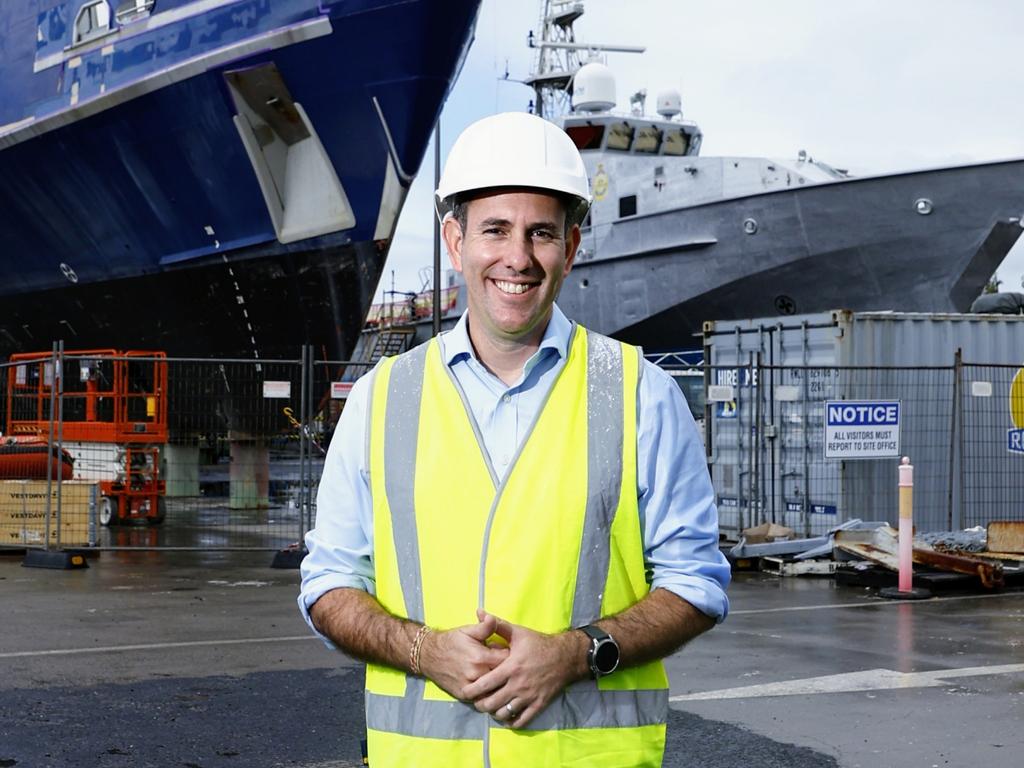


No one should underestimate the chances of the voice getting up, despite bad polls and the fact it goes against Bob Hawke’s famous declaration in 1988 that Australia has “no hierarchy of descent” and “no privilege of origin”.